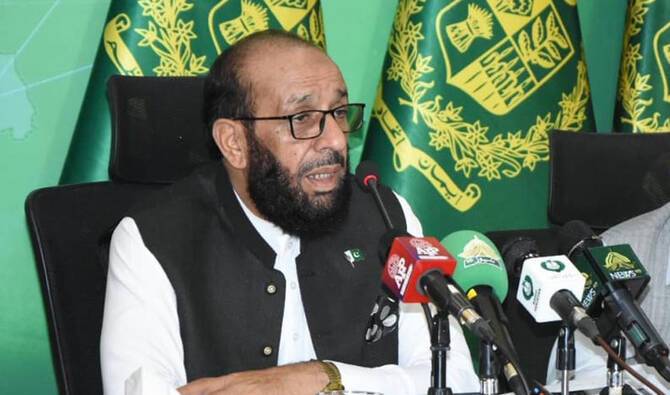
Sardar Yousaf Clarifies 40,000 Missing Pilgrims Claim, Launches New Digital Tracking System
Islamabad, July 18, 2025:
Minister for Religious Affairs Sardar Muhammad Yousaf has clarified recent concerns regarding the reported disappearance of 40,000 Pakistani pilgrims in the Middle East, emphasizing that the number stems from outdated and incomplete travel records, not actual missing persons.
The clarification follows a wave of media scrutiny after official data suggested that tens of thousands of pilgrims who traveled to Iran, Iraq, and Syria over the past decade had neither returned nor been accounted for — raising serious concerns both domestically and internationally.
In response, Sardar Yousaf stated:
“My reference to 40,000 pilgrims was never intended to imply that all are missing abroad. The issue largely stems from paper-based travel records that were never digitized, leading to confusion.”
The Director General of Immigration and Passports, Mustafa Jamal Kazi, confirmed that most of the discrepancies involve pilgrims to Iraq, many of whom either overstayed for employment in the construction industry or, in some cases, engaged in begging. He added that these individuals had not returned over nearly a decade, thus appearing as missing in official logs.
To address the matter, the Religious Affairs Ministry has launched a digital portal designed to modernize pilgrimage monitoring. Under the new system, pilgrims and tour operators will be issued QR-coded e-cards, allowing families and authorities to track pilgrim movement in real-time.
“This initiative ensures greater transparency and accountability, and reduces the chances of misinformation spreading,” Yousaf explained. “Our goal is to ensure that every Pakistani pilgrim’s journey is safe, registered, and traceable.”
The Minister urged all pilgrims and licensed operators to register by August 31, cautioning that those who fail to comply may be categorized in incomplete travel logs.
As part of broader reforms, the government has also abolished the traditional ‘Salar system’, where private individuals managed pilgrimage groups without central oversight. Under the new Ziyarat Management Policy, only licensed tour operators will be allowed to organize religious travel, and they will be held accountable for ensuring every pilgrim’s return.
The reforms aim to provide better coordination with host countries such as Iran, Iraq, and Syria, and to demonstrate Pakistan’s commitment to modern governance and religious safety.
“Together, we can show the world that Pakistan is embracing technology to protect its citizens and uphold responsible international engagement,” Yousaf concluded.






